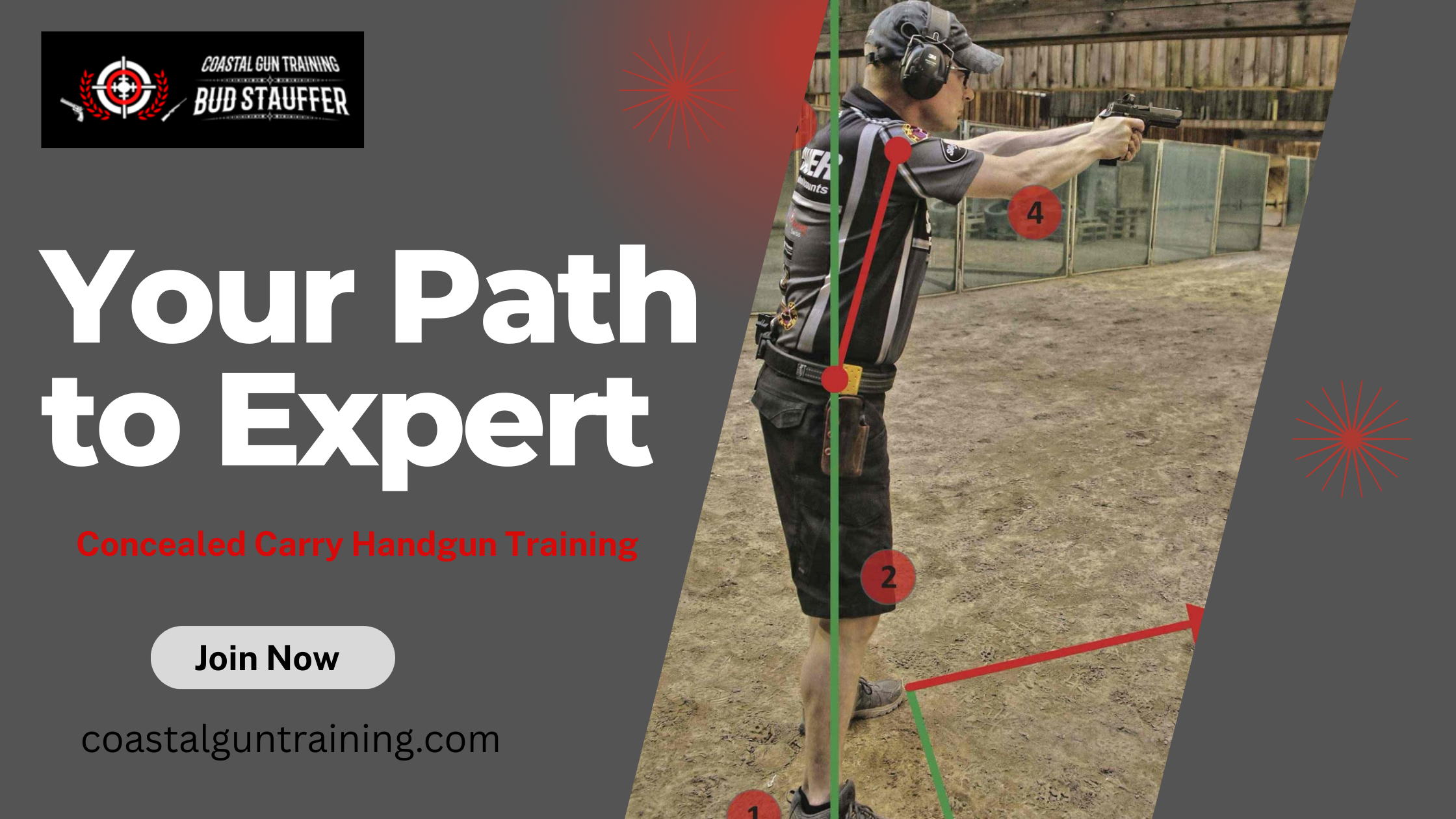
Concealed Carry Handgun Training, at its core, refers to the practice of carrying a firearm in a “concealed manner.” It allows individuals to discreetly carry a weapon for self-defenses purposes while going about their daily activities. From providing individuals security from dangerous situations to training them in escaping and defense, a lot is happening; let’s delve more into it in the following article.
Concealed Carry Handgun Training provides individuals with the necessary skills that will help them escape any tricky situation. This training prepares individuals for responsible firearm ownership by teaching them how to handle and store firearms securely.
Core Components of a Handgun Safety Training in NC include
Some of the effective ongoing training pursuits of a Concealed Carry Handgun Training include
This is the holy grail of this blog, as we shall explore all the ins and outs and the substantiated relevance of Concealed Carry Handgun Training.
Accidents happen, be it from thin air, and can happen in the blink of an eye. And in this world that is as unpredictable as life and death, there is no savior. So would we die? No, we would be our own savior, and a Handgun Safety Training in NC is the foundational brick of it.
This is one of the best things that you can get by enrolling in a Concealed Carry Training. Yes, you are trained by professionals. Here you get to learn.
To be precise, you need to understand that training with arms requires some sort of background, some cardinal credentials, and accreditations. Some of the Shooting Qualifications for CCH trainers include.
a. Live-fire range training.
b. Written instructor certification examinations.
c. Practical exercises to demonstrate organizational and teaching skills.
d. Passing a shooting qualification course.
Please take note that the state of North Carolina clearly mentions that the trainers should have a detailed description of themselves. It also states that the Shooting Qualifications for CCH for trainees or applicants are to be enrolled in muster rolls and should be followed strictly. Here are some of the prerequisites
Confidence can be crucial in a self-defenses situation, potentially allowing you to resolve conflicts without resorting to force.
Concealed carry handgun training is not a one-time requirement—it’s a lifelong commitment to safety, responsibility, and preparedness. While obtaining a permit is an important milestone, it’s only the beginning of your journey as a responsible firearm owner. Regular training ensures that your skills remain sharp, your decision-making stays sound, and your understanding of legal and ethical responsibilities evolves with changing laws. At Coastal Guns Training, we offer guidance that can help you excel and acquire the best of all. Connect with us today and train to your full potential.
Q. What topics are typically covered in a Concealed Carry Handgun Training?
Courses often include instruction on safe handling, storage practices, legal responsibilities, and basic marksmanship. Participants learn how to operate various types of firearms responsibly and understand the laws governing their use within the state.
Q. Is prior experience required to enroll in a Handgun Safety Training in NC?
No prior experience is necessary. Many programs are designed for beginners and include foundational instruction on firearm mechanics, safety protocols, and shooting techniques.
Q. How long does a typical safety training course last?
Most introductory courses span 8 to 16 hours, depending on the curriculum. This time is split between classroom instruction and live-fire exercises to ensure comprehensive understanding and practical application.
Q. Are online safety courses accepted for legal compliance in North Carolina?
While online courses may offer valuable information, they are generally not sufficient for meeting state requirements related to legal certification. In-person training is typically mandated to ensure hands-on proficiency and supervised evaluation.
Q. What kind of shooting test is required for Shooting Qualifications for CCH trainees?
Participants are usually required to demonstrate accuracy at distances such as 3, 5, and 7 yards. The test may involve hitting a designated target with a minimum score, using a firearm of appropriate caliber. Some states mandate a specific number of rounds and target types for qualification.
Q. Can someone take a safety course without owning a firearm?
Yes. Many training centers offer rental options for participants who do not yet own a firearm. This allows individuals to complete the course and gain experience before making a personal purchase.
Q. What kind of questions appear on written exams during training?
Written exams typically assess knowledge of safety rules, legal regulations, firearm components, and proper handling procedures. Questions may include topics like trigger discipline, storage laws, and use-of-force scenarios.